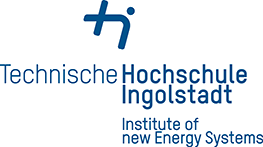A brief experience on the implementation of the UAS model: Joshua Ng’etuny-TU-K
Implementation of UAS Model
Based on the lessons learnt, the following summarizes my experience in implementation of the UAS model
The approach
A three pronged approach was adopted to implement the UAS idea;
- Implementing the model in my daily business; teaching, internship coordination and final year projects supervision
- Sensitization of students, colleagues and management
- Approaching possible industry partners
Success stories
- The UAS approach aligns well with the mission and vision of the university which has its roots as a technical university
- The UAS approach was well received by students and colleagues. The applied teaching approach using case studies proved stimulating to students, encouraging creativity and making learning fun
- The idea was well received by colleagues and a conversation was generated leading to;
- Elements of the UAS model are being embedded into the B.Eng Tech Chemical engineering curriculum under review
- A strategy to undertake multidisciplinary projects is under consideration by the department. This will involve design of pilot plant equipment by chemical engineering students and fabrication by chemical engineering students & technicians
- Industry partners approached (where students are attached) have shown a willingness to work with the department. The commitment have so far been informal, a formal working relationship shall be concretized once the idea is fully adopted university-wide
- Database of industry partners that offer internship to our students and will form a first port of call for possible collaboration
- Making use of existing MoUs with other universities (Moi University, University of Dar-Es-Salaam) to provide exposure to different laboratory equipment not available at the university
- Adarsh polymer ltd, a start-up gave us final year projects on converting plastics to fuel. Results of the project will be presented on the 17th April 2019 as a final year project presentation
Challenges
- Culture change
- Workload- changing the mode of teaching needs reconfiguring the teaching content delivery style.
- Financial challenges
- Bureaucracy at the industry
What next?
- Pre-internship/ IBL seminar for students scheduled for the beginning of the semester
- Seminar for final year projects scheduled for May-August semester
- Follow-up with companies who have showed willingness to work with us
- Continue with sensitization of colleagues at the school and faculty level


Leave A Comment